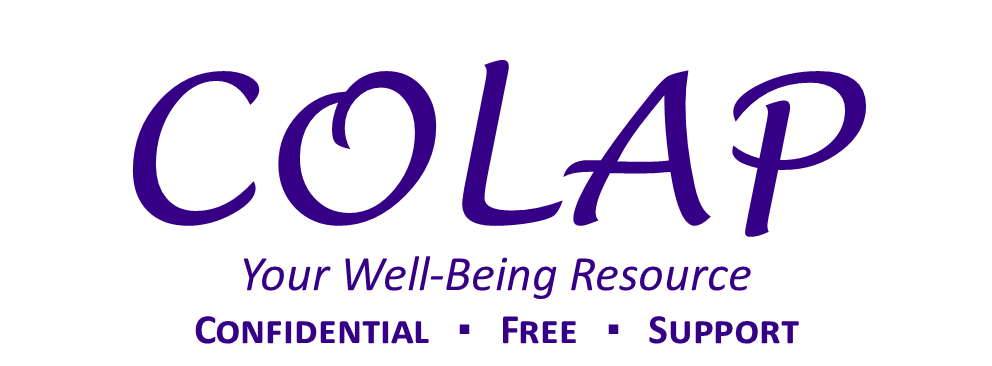Making Judgments vs. Being Judgmental

Colorado Lawyer Assistance Program
2490 West 26th Avenue
Denver, CO 80211
303-986-3345
www.coloradolap.org
“The ability to observe without evaluating is the highest form of intelligence.” -Jiddu Krishnamurti
Being a judge or magistrate requires skills that relate to making judgments: analysis, synthesis, problem solving, writing, and critical thinking. Because there is so much riding on a judges or magistrate’s ability to make quick, discerning decisions, many of you spend the majority of your time, on and off the bench, using the parts of the brain that are needed for such skills. As a result, you might have a hard time “turning off” that way of thinking.
The more we practice certain styles of thinking, the more the brain becomes accustomed to using the parts of the brain associated with that pattern. What happens to the parts of the brain that are not used regularly? We used to think that those parts would permanently atrophy. Thankfully, we now know that neurogenesis, or the regeneration of the brain, can occur if we make the effort to use all parts of the brain. One way to use different parts of the brain is to mindfully engage in different ways of thinking about the world around us.
The brain, like human behavior and the emotions we experience on a daily basis, can fall into a rut. When we fall into a rut of constantly using our critical thinking skills or ability to make judgments, that pattern of thinking will be used in areas that are outside of work. The result is that we can become critical and judgmental of ourselves and those around us, such as our friends and family. In addition, being judgmental of ourselves or others produces chemicals and hormones in the body that compromise the immune system and, over time, leave us vulnerable to disease and illness.
It can be difficult to know the difference between using critical thinking skills and being critical in general, or making judgments and being judgmental. Generally speaking, if we experience the following, we are most likely being critical and judgmental:
1. Have a strong emotional reaction to the situation;
2. Believe that another person’s words or actions are wrong because we would have “done things differently;”
3. Experience thoughts that come from an “us vs. them” type of mentality;
4. Self-criticism;
5. Have a difficult time accepting “what is”;
6. Comparing ourselves to others; or
7. Believe that the people around us should know what we are thinking, or what we need, and become angry with them when they don’t “read our mind.”
So how do we change this pattern? The first step is to become aware of our thought patterns and what skills we are using in different circumstances. On the bench, a judge or magistrate controls his or her courtroom in the midst of an adversarial system. At home, however, attempting to control the people you love and care about can destroy relationships. When you are finished with work for the day, don’t just turn off the computer, put down the critical thinking and judging part of your brain also. Start exercising the compassionate, understanding, and cooperative parts of your brain. Rather than continuing to direct and control those around you even after you leave the courthouse, start listening and asking thoughtful questions of your friends and family at home. You will be surprised how much happier you will become when you find that your brain, your personality, and your behaviors can be multi-dimensional and creative rather than static and predictable.
By Sarah Myers, JD, LMFT, LAC Executive Director, Colorado Lawyer Assistance Program © Colorado Lawyer Assistance Program, 2020
The Colorado Lawyer Assistance Program (COLAP), your free, confidential and independent well-being program for Colorado judicial officers, is available at www.coloradolap.org or by calling 303-986-3345. If you or a colleague are in need of confidential support, referrals, direction on how to resolve personal or professional stressors, or are interested in a free well-being consultation, please contact COLAP directly for assistance.